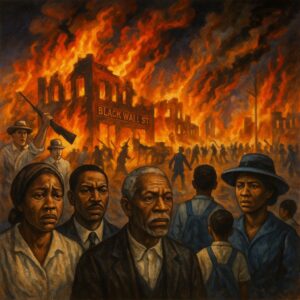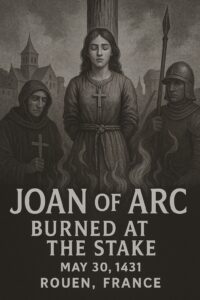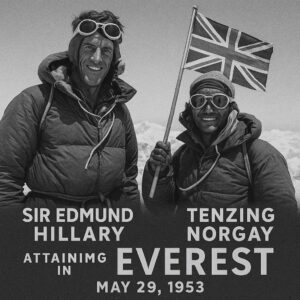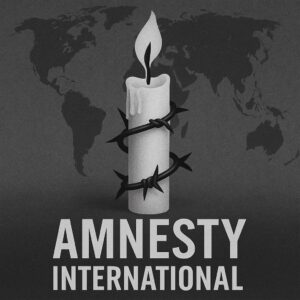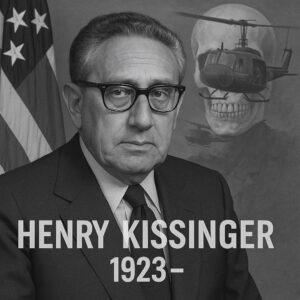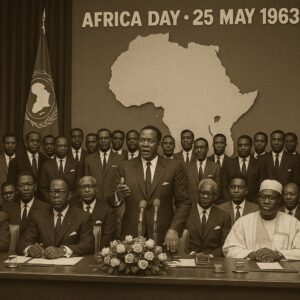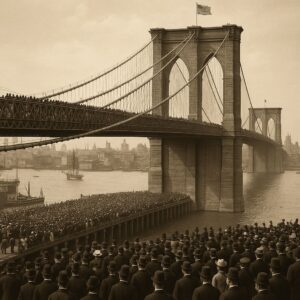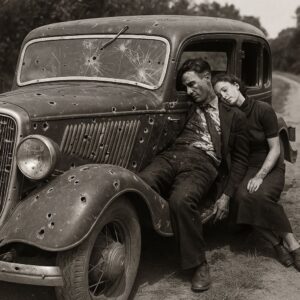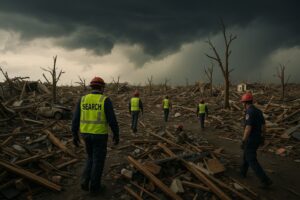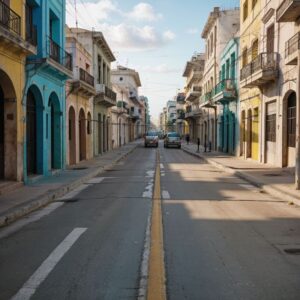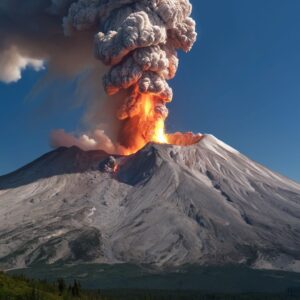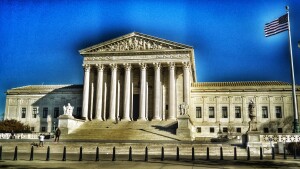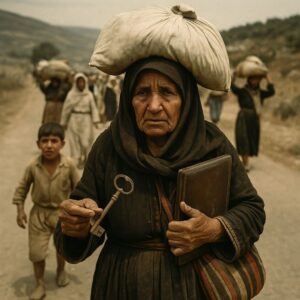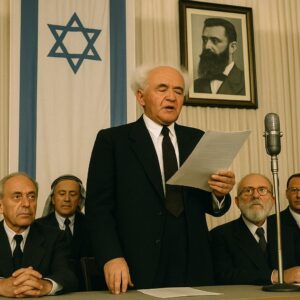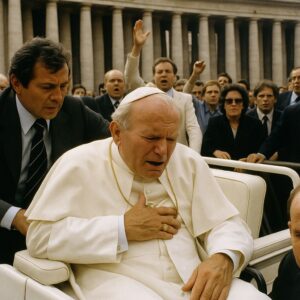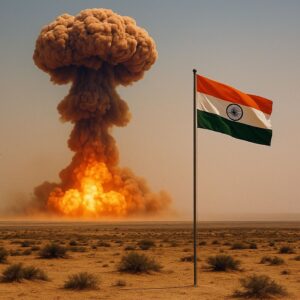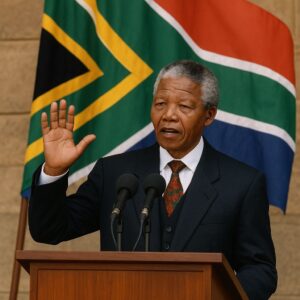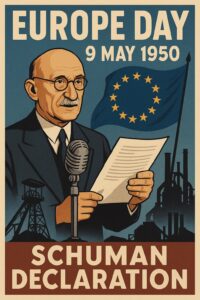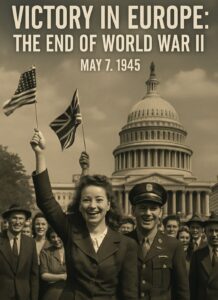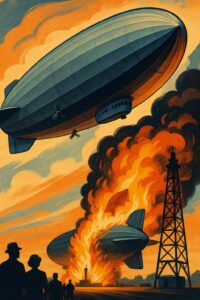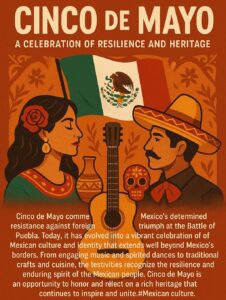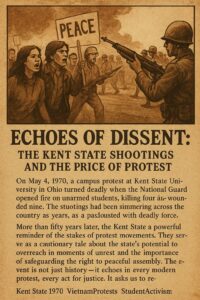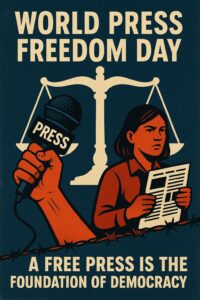The night of May 31, 1921, should have been like any other for the residents of Greenwood, a bustling and proud neighborhood in Tulsa, Oklahoma. Children would have been finishing their homework by gaslight, shopkeepers closing their businesses with the satisfaction of a day’s earnings, and neighbors chatting on porches under the warm spring air. …
May 2025 archive
Martyr for the Nation: Joan of Arc’s Enduring Legacy
The wind carried the scent of burning wood and the murmurs of a restless crowd through the medieval streets of Rouen on May 30, 1431. In the town square, a nineteen-year-old girl stood shackled to a wooden stake, her clothes charred from the flames that licked hungrily at her body. Around her, clergy read prayers …
On Top of the World: Hillary and Norgay’s Triumph on Everest
On May 29, 1953, two men from very different worlds stood together at the summit of human achievement. Sir Edmund Hillary, a beekeeper and mountaineer from New Zealand, and Tenzing Norgay, a Sherpa climber from Nepal, had just reached the highest point on Earth — the summit of Mount Everest. This historic moment was the …
Splash Zone Spectacle: The Thrill and Controversy of SeaWorld’s Orca Show
シーワルド・サンディエゴ 期待しないで行ったのですがとても良かったです。1日で周らないといけないので、乗り物を二の次で、ショーを中心に周ろうと決定。 ショーの時間は、パーキング入り口で貰った地図の紙に書いてありました。 各ショー開演30分前から会場入りなので、良い座席確保の為に早めに席取りが基本。でも待ってる客を飽きさせない工夫がされてるのがgood! ポップコーンや食べ物を食べながら映画鑑賞のノリでみんな着席。 ORCA(シャチ)ショー 前へ行くほど水が掛かります。この席まで濡れますと表示されてます。ちょっとかかるぐらいじゃありません。全身ずぶ濡れです。 前席に座るなら、最初から水着を着るかレインコートを持っていくか着替えを持つか防御が必要です。会場でもポンチョやタオルを売り子が売り歩いています。 初めて生で見るシャチの大きさにど肝を抜かれ、ザッパザッパ高波を作り飛び跳ねる巨体。尾ひれで遠慮なく客に洗礼の如く水しぶきを掛けていきます。子供達は浴槽近くでスタンバイ。オオハシャギでそれを待ちかねます。 観客の中から選ばれた1人が特別席に座り、水しぶきを間近で思いっきり浴びると観客のボルテージはMAX! シャチの種類や生体についてスクリーンで説明してくれるのが嬉しかったです。 前に事故があったせいで飼育員が浴槽に入ってのパフォーマンスは禁止されたそうで、浴槽外からの指示でしたがとてもよく連携が取れていて、技を決める度に、シャチの顔が笑っているように見え可愛かったです。 パークへの入場チケットと駐車場料金は公式ページで前もって購入するのがお得です。米軍関係者は特別料金があるので、お近くのMWR Ticket officeへ行くことをおススメします。 Sea World San Diego
A Man of Many Controversies: Henry Kissinger and the Art of Diplomacy
Henry Kissinger, born on May 27, 1923, is a figure whose name conjures a mixture of admiration, scorn, and heated debate. A key architect of U.S. foreign policy during the Cold War, Kissinger’s career spanned presidential administrations and continents, from Vietnam to China. But for all his successes in diplomacy, his legacy is complicated—marked by …
Breaking the Record, Breaking the Limits: The Four-Minute Mile
On May 6, 1954, Roger Bannister did the unthinkable: he became the first person to run a mile in under four minutes. A feat that many thought was physically impossible, Bannister’s achievement not only shattered a record but also demolished preconceived limits about the human body and mind. At the time, experts believed that running …
Africa Rising: The Birth of Unity on the Continent
On May 25, 1963, thirty-two newly independent African nations came together to form the Organization of African Unity (OAU), marking a pivotal moment in the history of the continent. Africa Day, as it became known, symbolized not just political unity, but the promise of a future in which African countries would stand together against the …
Stone and Steel: The Brooklyn Bridge and the Architecture of Ambition
On May 24, 1883, thousands gathered to witness the opening of the Brooklyn Bridge—a structure so daring, so ambitious, that it redefined what human beings could build. Spanning the East River, it connected Brooklyn and Manhattan in a way never before imagined. The bridge’s story is as much about people as it is about steel. …
Bullets and Headlines: The Legend and Lies of Bonnie and Clyde
Early on May 23, 1934, a barrage of bullets tore through a Ford V8 on a Louisiana backroad. Inside were Bonnie Parker and Clyde Barrow—outlaws, lovers, and the most infamous fugitives of the Great Depression. They died instantly. America, meanwhile, had already turned them into legends. Their crime spree spanned two years, from bank robberies …
In the Path of Fury: The 2011 Tornado Outbreak and the Human Toll
May 22, 2011. At 5:41 p.m., a monstrous EF5 tornado touched down in Joplin, Missouri. Within minutes, it carved a mile-wide scar across the town. Entire neighborhoods were flattened. Hospitals destroyed. Schools crushed. 161 people were killed. Thousands more were injured or left homeless. It was one of the deadliest and most costly tornadoes in …
Chains Broken, Strings Attached: Cuba’s Complicated Independence
On May 20, 1902, the Cuban flag was raised over Havana, and the island officially became independent from U.S. military occupation. It should have been a moment of unambiguous freedom. After centuries of Spanish colonial rule and a costly war of liberation, Cuba was finally its own nation. Or so it seemed. In reality, Cuba’s …
By Any Means Necessary: Malcolm X and the Fierce Urgency of Now
Born Malcolm Little on May 19, 1925, he would later become Malcolm X—a name and a voice that pierced through America’s conscience with unapologetic clarity. Where others sought gradualism, Malcolm demanded justice now. Where others asked, he declared. And in doing so, he became both revered and reviled. Malcolm X’s early life was marked by …
When the Mountain Spoke: Mount St. Helens and the Limits of Control
At 8:32 a.m. on May 18, 1980, the north face of Mount St. Helens exploded with the force of 500 atomic bombs. What had begun as a series of small earthquakes and venting plumes became the deadliest and most economically devastating volcanic eruption in U.S. history. Fifty-seven people died. Hundreds of homes, bridges, and miles …
Unanimous Justice: The Day the Wall Began to Crack
On May 17, 1954, the United States Supreme Court did something monumental: it unanimously declared that racial segregation in public schools was unconstitutional. The case—Brown v. Board of Education—didn’t just overturn a legal precedent. It cracked the very foundation of institutional racism in America. For decades, Plessy v. Ferguson (1896) had held that “separate but …
The Gilded Cage: Marie Antoinette, Marriage, and the Machinery of Revolution
On May 16, 1770, a 14-year-old Austrian archduchess named Maria Antonia walked into a gilded future. Her marriage to the Dauphin of France, the future Louis XVI, was a diplomatic union meant to solidify peace between Austria and France. It was a wedding not of love, but of strategy. And though her crown would glitter, …
The Nakba: When Home Became Memory
On May 15, 1948, as Israel celebrated its birth, hundreds of thousands of Palestinians began a long, painful journey into exile. What for some marked a new beginning, for others became the end of home as they knew it. They call it al-Nakba—”the catastrophe.” By the time the guns quieted, over 700,000 Palestinians had fled …
A Homeland Born in Fire: The Founding of Israel and Its Unfinished Story
On May 14, 1948, David Ben-Gurion stood in Tel Aviv and declared the establishment of the State of Israel. For many Jewish people around the world—especially Holocaust survivors—it was a moment of hope, a long-awaited return to a homeland. Yet for others, particularly the Palestinians who lived there, it marked the beginning of displacement, dispossession, …
Faith Under Fire: The Day the Pope Was Shot
May 13, 1981. St. Peter’s Square in Vatican City was bathed in light, the air buzzing with anticipation as Pope John Paul II moved through the crowd in his open vehicle, smiling and blessing. Then—gunshots. In an instant, the serenity shattered. The Pope slumped into his seat, wounded by four bullets fired at close range. …
The Lady with the Lamp: How Florence Nightingale Revolutionized Care
When Florence Nightingale was born on May 12, 1820, few could have imagined that a woman of her social class would one day be synonymous with the transformation of modern healthcare. Yet Nightingale—armed not with weapons, but with notebooks and a fierce will—marched into battlefields and hospital wards to change the very way we care …
Smiling Buddha and the Fallout of Power: India’s Nuclear Debut
In the arid heat of Rajasthan’s Pokhran desert, a seismic shift occurred beneath the surface—both literally and geopolitically. On May 11, 1974, India detonated its first nuclear device under the codename “Smiling Buddha,” marking its dramatic entry into the nuclear club. It was a moment of national pride, strategic assertion, and global unease. For India, …
From Prisoner to President: The Day South Africa Changed Forever
On May 10, 1994, the world witnessed a moment that felt more like a dream than a headline: Nelson Mandela, a man who had been imprisoned for 27 years, stood tall and resolute as the first Black president of South Africa. It was more than an inauguration—it was a symbol of an entire nation turning …
From War to Unity: How the Schuman Declaration Sparked the European Dream
On May 9, 1950, just five years after the end of World War II, French Foreign Minister Robert Schuman stepped forward with a bold and visionary proposal: to unite the coal and steel industries of France and West Germany under a single authority. This act, known as the Schuman Declaration, wasn’t merely an economic initiative—it …
Giants of the Sky: The Rise and Fall of Airships
In the early 20th century, airships were symbols of futuristic elegance and national pride—massive floating palaces that promised to change the way humanity traveled the world. These lighter-than-air behemoths, particularly the German-made Zeppelins, soared gracefully through the skies, offering an unparalleled view of the Earth below. They represented the pinnacle of innovation in an age …
Cinco de Mayo: A Legacy of Resistance and Cultural Pride
Cinco de Mayo is more than just a day for festive parades, vibrant decorations, and spicy cuisine — it is a powerful symbol of resistance and the enduring strength of Mexican cultural heritage. On May 5, 1862, a vastly outnumbered and under-equipped Mexican army achieved a stunning victory over the French forces at the Battle …
Echoes of Dissent: The Kent State Shootings and the Price of Protest
On May 4, 1970, a campus protest at Kent State University in Ohio turned deadly when the Ohio National Guard opened fire on unarmed students, killing four and wounding nine. The students had gathered to protest the U.S. invasion of Cambodia, an escalation of the already controversial Vietnam War. Tensions had been simmering across the …
The Voice of the People: Why a Free Press is Democracy’s Lifeline
A free press is not just a luxury of democracy—it is its very foundation. On World Press Freedom Day, we are reminded that the ability to speak truth to power, to uncover injustice, and to hold leaders accountable is what keeps democracies vibrant and alive. Without journalists asking hard questions, corruption festers. Without storytellers giving …
The End of a Hunt: Bin Laden’s Death and the New Face of Global Security
On May 2, 2011, the world woke up to news that seemed almost surreal: Osama bin Laden, the mastermind behind the 9/11 attacks, had been killed by U.S. Navy SEALs in Pakistan. For nearly a decade, bin Laden had been the most wanted man on the planet, a ghostly symbol of terror and fear. His …
- 1
- 2

